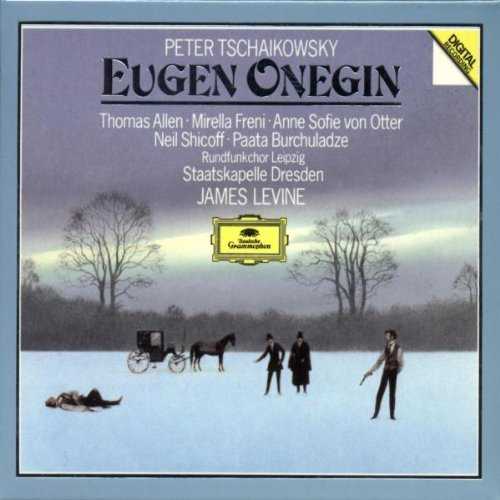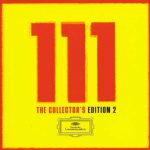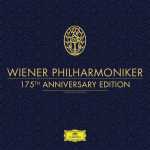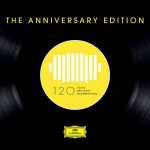
Composer: Peter Tchaikovsky
Orchestra: Staatskapelle Dresden
Conductor: James Levine
Audio CD
SPARS Code: DDD
Number of Discs: 2
Format: FLAC (image+cue)
Label: Deutsche Grammophon
Size: 726 MB
Recovery: +3%
Scan: no
Eugen Onegin – Thoams Allen
Tatyana – Mirella Freni
Olga – Anne Sofie von Otter
Lenski – Neil Shicoff
Prince Gremin – Paata Burchuladze
Triquet – Michel Senechal
Larina – Rosemarie Lang
Filipyevna – Ruthild Engert
levine_tchaikovsky_eugene_onegin1987_02.rar – 396.7 MB
Which Onegin to buy, Levine or Bychkov?
When The Gramophone gave a lukewarm review to Levine’s 1989 Eugene Onegin on DG and a stone rave to the 1993 set under Semyon Bychkov on Philips, I felt a healthy skepticism. How a magazine devoted to classical music listening could hire writers with tin ears is beyond me. I decided to investigate for myself. Without a doubt these are the two leading modern versions of Tchaikovsky’s most famous opera, at least outside Russia itself. Ironically, considering that he has sniffed out many rarely heard Russian operas, Valery Gergiev wasn’t given the chance to record Eugene Onegin, the second most famous Russian opera, after Boris Godunov; Philips gave the nod to Bychkov instead.
Levine/ Dresden: This is a non-Russian reading with a stellar international cast (British, Italian, American), replicating a great night at the Met in the late Eighties, only transferred to Dresden. The advantages of having world-class musicians at every level, from Levine’s truly exceptional conducting to the Staatskapelle’s gorgeous orchestral sound and the casting of Freni, Allen, and Shicoff, are unmatched by any rivals. And every singer is in fine voice. How anyone could rate this set below the highest is a mystery to me. Even the German chorus sounds totally Slavic, but then, it helps that 999 out of a thousand Western listeners don’t know a syllable of Russian (beyond nyet and da). Our willingness to hear unidomatic singers is one of the reasons Onegin has been so often performaed in the West without benefit of Slavic voices.
What really matters is dramatic conviction, and here again the Levine set is unequalled outside Russia. Tchaikovsky’s score is musically static compared to Verdi, with many intimate scenes and inward emotions. Melodies are spun out slowly over long stretches. Therefore, it’s vital to have a conductor and singers who bring inner vibrancy to every bar. Levine, Freni, Shicoff, and Allen do just that. I couldn’t tear myself away, which wasn’t the case listening to the Bychkov set. The one minus cited by many critics has to do with Freni’s age, but she’s in great voice and frankly sounds as young as anyone could wish without being girlish. Her counterpart on the Bychkov set, Nuccia Focile, sounds fresher but is nowhere near the artist that Freni is. In sum, this is one of Levine’s real (and surprising) triumphs on disc.
Bychkov/ Paris — I am an admirer of Semyon Bychkov, particularly in his early days when he shot to prominence conducting the Berlin Phil. and, as here, the Orchestre de Paris, but his skillful management of the score is underpowereed and at times slack compared to Levine. The melodic line is allowed to languish, however prettily, too often. His orchestra is quite good–it’s not recorded in the best sound by Philips–yet it lacks the special finesse and glow of the Dresden group.
The main reason that critics swooned over this set comes down to one name: Dmitri Hvorostovsky. Onegin is his signature role, as Boris Godunov was for Christoff, and he makes the most of it. With his matinee-idol looks, DH is a smash onstage; moreover, he bothers to act with his voice here (as he rarely does in Verdi, Mozart, or sometimes in Russian roles). With his perfeclty even vocal production and superb dramatic inflections, no better, more alluring hero can be imagined.
But the superiority of the singing stops there. Focile gives us a fine Tatyana, but her voice is rather edgy, especially as recorded by Philips. Neil Shicoff repeats his excellent Lensky (another signature role) from the Levine set, but he’s notably less fresh and ardent. In fact, Shicoff provides a touchstone for comparison. Listen to any passage where he appears, and see if Levine doesn’t bring out much the best in him compared to Bychkov.
Much more could be said about both these esteemed sets, yet this is one case where the dark horse wins the race. I plump for the Levine recording on all counts except Hvorostovsky. He has countless fans, and his Onegin proves that he deserves them. For overall musical pleasure, however, the Philips recording comes in second.




Thanks again
Thanks
Beautiful opera! Thank you very much!
Many thanks to this share !
thank you very much for this share